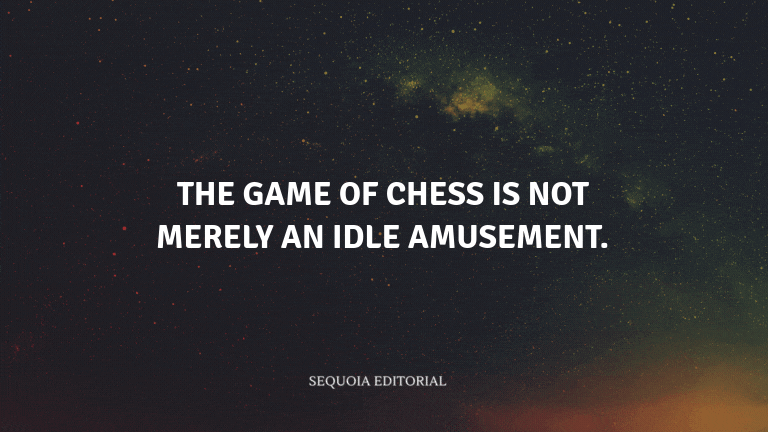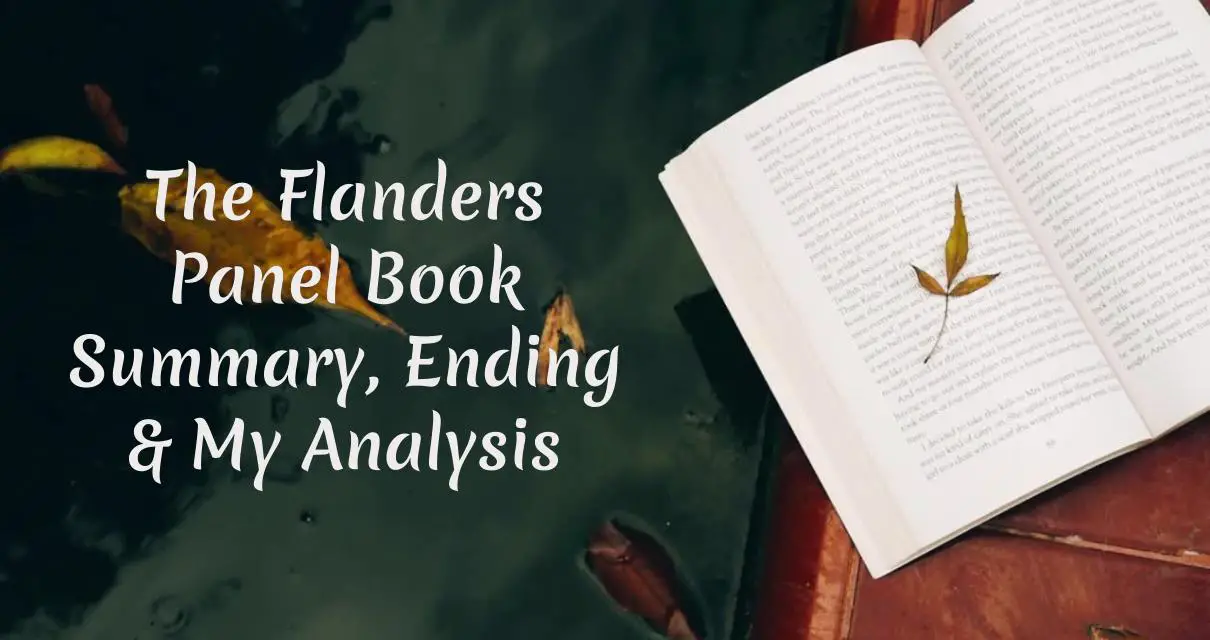The Flanders Panel is about a clever art restorer named Julia who discovers a hidden message in a 15th century painting. The message leads her on a quest to unravel a centuries-old mystery involving love, death, and a strategic game of chess. The book is filled with suspense and intrigue as Julia delves into the past, uncovering the connections between the game in the painting and a modern-day murder.
Table of Content
The Flanders Panel Book Summary
Julia, a skilled art restorer, is working on a 15th century painting known as the Flanders panel. As she cleans the painting, she discovers a hidden inscription that reads, "Quis necavit dominum de Rette?" - Latin for 'Who killed the knight from Rette?'. Intrigued, she begins to investigate the meaning behind these cryptic words.
Julia enlists the help of her friend Jonathan, a keen chess player, to solve the puzzle. Together, they deduce that the inscription is a clue to a centuries-old murder related to a game of chess depicted in the painting.
Julia's investigation leads her to various art historians and experts, including her former lover Munoz, whose involvement adds a layer of personal complexity. As Julia and Jonathan delve deeper, they realize the connection between the game in the painting and a series of modern-day murders.
Alternating between present and past, the narrative unravels the story of two 15th century noblemen, Alvaro and Garcia, whose rivalry in love and chess led to a complex web of deceit and betrayal. Julia suspects that the past events are being reenacted in the present.
Grace, a young girl under the care of Munoz, becomes entangled in the mystery, and Julia fears for her safety. The investigation takes an ominous turn when Grace disappears, intensifying the urgency to solve the puzzle.
As Julia and Jonathan continue their search, they discover that the chess game in the painting is a real historical event and holds the key to both the past and present crimes. The pieces on the chessboard mirror the characters and their fates.
Julia pieces together the story of Alvaro and Garcia, realizing that the game was used as a cover for an actual murder. Through meticulous analysis of the chess moves, she identifies the killer from the past, who might be connected to the modern-day deaths.
The lines between the past and present blur further as Julia and Jonathan suspect those around them. Jonathan's true motives come to light, revealing his manipulative nature and his willingness to sacrifice lives for his own gains.
The novel's climax unfolds during a chess match between Julia and Jonathan. Using her understanding of the historical game, Julia confronts Jonathan, who is implicated in the recent murders. The match becomes a metaphor for their intense battle of wits and trust.
With Jonathan's downfall, the mystery begins to unravel. The revelation of who killed the knight from Rette changes everything. Secrets are exposed, and the painting's true significance is finally acknowledged by the art world.
Munoz, who had been involved in the historical intrigues, redeems himself by rescuing Grace and aiding Julia in the final stages of the investigation. The past is put to rest as the modern-day characters come to terms with the implications of the centuries-old events.
Julia, having solved the intricate puzzle, gains a deeper understanding of the painting and its connection to her own life. She emerges as a resilient and perceptive heroine, whose intellect and determination have unlocked a secret lost in time.
As the last pieces of the puzzle fall into place, the story concludes with a sense of closure and a renewed appreciation for the enduring power of art and its ability to reflect and shape human destiny.
The Flanders Panel Quotes
- What is important is the fight.

- The game of chess is not merely an idle amusement.

The Flanders Panel Ending Explained
At the end of The Flanders Panel, the intricate mystery of the painting and its hidden message are finally unraveled by Julia and Jonathan during a high-stakes chess match.
Jonathan, the mastermind behind the modern-day murders and a chess player of cunning skill, faces off against Julia. As the game progresses, Julia's sharp analysis of the historical chess game within the painting provides her with the key to exposing Jonathan as the killer.
In a climactic move, Julia reveals the identity of the 15th century murderer, forcing Jonathan to make a critical error. The match concludes, and with it, the resolution of the puzzle. Jonathan is apprehended, and the truth behind the Flanders panel is acknowledged, bringing an end to the entwined tales of past and present.
Characters in book The Flanders Panel
- Julia: The protagonist, an art restorer with sharp observation skills and a fascination for puzzles, who uncovers the mystery of the Flanders panel.
- Jonathan: Julia's friend, a wealthy Englishman and an expert chess player, who assists Julia in solving the puzzle and also has a hidden agenda.
- Munoz: An art historian and Julia's former lover, who becomes involved in the investigation and has complex feelings for Julia.
- Grace: A young girl with a tragic past, who is central to the historical story entwined within the painting's secret.
- Alvaro: The historical nobleman and chess player from the 15th century, whose life and secrets are reflected in the painting.
- Garcia: Alvaro's rival in love and chess, whose shadow stretches through time to affect the lives of the modern-day characters.
Key Lessons
- Perception is Deceptive: What we perceive at first glance may be far from the truth. A deeper understanding often requires investigation and open-mindedness.
- Look Beyond: Solutions to complex problems may lie beyond the obvious. It's crucial to look beyond the surface to uncover hidden meanings.
- History Repeats: The echoes of the past can reverberate in the present. Recognizing historical patterns is essential to avoid repeating mistakes.
- Trust Your Instincts: Gut feelings and intuition can be valuable guides in solving puzzles and navigating through treacherous situations.
- Embrace Complexity: Embracing the complexity of a situation can lead to deeper insights and ultimately to the resolution of the problem.
My Personal Opinion
Is The Flanders Panel worth reading? Absolutely yes, I found it to be a captivating and intelligently crafted mystery. The intricate web of chess, art, and history is masterfully woven to keep the reader engaged throughout.
I was enthralled by the depth of the puzzles and the meticulous attention to detail. However, there were moments when the complexity of the narrative felt overwhelming, and the pacing occasionally slowed down the otherwise thrilling story. The characters were rich and intriguing, but some of their interactions left me wanting for more emotional depth.
I would recommend this book to readers who relish a challenge and enjoy being immersed in a world where every detail holds significance. Those with an interest in art, history, or chess will find The Flanders Panel to be an exceptional fusion of these themes.

